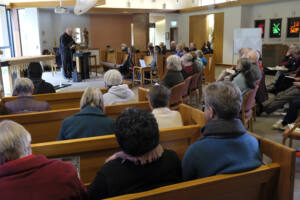
WelCom November 2024
Bernie Kernot
When seventy people gathered at the ‘Ko Te Tiriti Mai Rāno: The Treaty Is Always speaking. A Covenant for the Generations’ hui in July they were asked to reflect on aspects of Te Tiriti from moral and religious perspectives. They were led by presenters speaking on Catholic Social Teaching, Te Tiriti as a covenant, and building a vision for a bicultural future.
Responses from the eight groups discerned four broad conclusions, which are offered as a resource for groups and individuals seeking guidance.
A clear need to build relationships and listen to mana whenua.
A need for reconciliation for past injustices, and better education leading to greater awareness of Te Tiriti.
The integration of Māori perspectives and values into church practice.
It is important for the whole Church to take a systematic, proactive approach to fostering unity, advocating for social justice, and addressing societal challenges.
In contrast to the current negative rhetoric of division and disharmony, the insights of the hui offer Catholic parishes and institutions positive ways of responding to Te Tiriti and helping create a just Te Tiriti-based social order. Already we have seen over 400 religious leaders expressing concern at the corrosive rhetoric of politicians, with a call for reconciliation. It is an invitation for all Christians, and especially Catholics with a rich tradition of social justice, to examine our social reality and respond through a gospel lens. The insights of the hui are offered as a helpful resource for parishes and social justice groups taking up the challenge for social justice.
Bernard Kernot is a retired academic, and a former chair of the archdiocese Commission for Justice, Peace and Development (now Commission for Ecology, Justice and Peace).